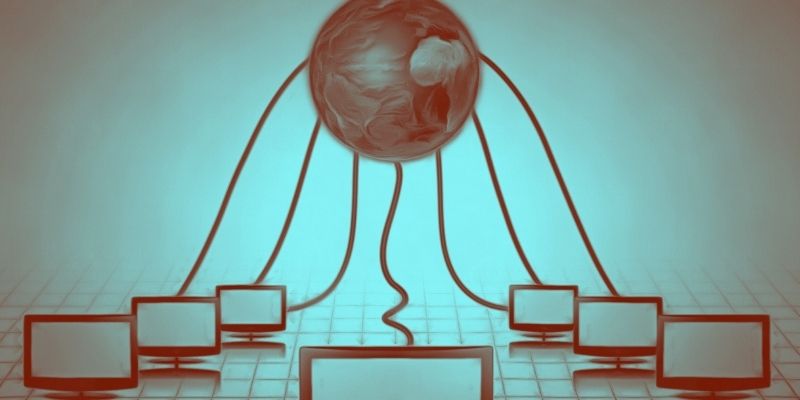What do trade practices, nationalism, racism, and ethical business practices have in common in potentially making our world a better place through individual and collective action?
Global trade is the lifeblood of humans on this planet, representing an average hovering around 58% to 60% of the world’s gross domestic product [1]. Trade has been a mechanism to alleviate poverty, nourish, and improve the welfare of countries and their citizens and the speed at which trade has advanced due to technological improvements may be attributed to an increase in the rate at which lives have improved [2], the degree of which is often debated.
However, trade is not a simple formula of ‘the more trade, the faster, the better’, because each aspect of trade can have a net positive or negative effect on economies and may impact different parts of society depending on how the trade is conducted. Systems and rules are required to keep trading practices ethical and fair, to ensure there are robust and useable mechanisms to address trade disputes [3].
In the last decade, there has been a rise of ‘anti-trade’ protectionism [4] and a seemingly consistent parallel increase in nationalism in many states and in societal attitudes [5] – particularly relating to immigration, immigrants, and treatment of ‘non-Nationals’ even in developed economies such as Singapore [6].
Politicians have in many cases tried to create divisions of perception and eliminate tolerance of differences, often portraying xenophobia and racism [7] as a ‘cultural right’. The battle against racism, unfortunately, continues to be reflected in the sport which at least appears ahead of many Governments by acknowledging first that racism is unacceptable and trying to eradicate it [8]. The levels of racism that exist, either on or under the surface of society, are also a reflection of the lack of or progression of advancement of that society [9].
The decisions that world government, international organisation, major and small-medium trade enterprises, and every citizen within a community makes with regards to supporting sustainable trade and dampening unhealthy extreme nationalistic persecutory values will be critical for the shape of the global order and the experience of existing and future generations.
With the global COVID19 pandemic still an issue for the world and with a radical realisation that states are not particularly adept at creating knee-jerk rules and regulations in the face of a crisis, the real decisions makers – the ‘average’ person on the street’ will need to take a stand and try to influence global behaviour by voting, if they are allowed to vote, or by a suitable means of expression if they are not allowed to vote, in order to make a positive difference and encourage many but not all irresponsible, self-serving, incompetent and hypocritical leaders to make better decisions as trustees of civil societies and citizens.
Recently, we have seen a tirade of ‘I told-you-so gloating’ over the trade and supply issues that Britain has encountered during the fallout of the pandemic and in part due to its Government’s failure to address the immigration gap to ensure there is enough labour to support lorry and logistics requirements for trade [10]. The inward-looking glee in the plight of citizens who are part of global order is misplaced and also smacks of the racism and divisiveness that there remains an ongoing global raging war of which more enlightened parts of society trying to eradicate. This is the analogical equivalent of cracking open a bottle of champagne if your historically hated neighbours house is on fire without giving any thought at the minimum either to their wellbeing as fellow humans or the more selfish concern that the fire may spread quickly to your own home if you don’t do anything about it.

Yes, so far as trade is concerned, “we are all in this together”, whether or not one society detests the history and culture of another, or whether or not there remains embedded nationalistic racism evidencing the long road ahead for true enlightenment of our world.
Trade is not conducted on an ‘even playing field’ because the world isn’t fair and neither is our people. However, if there is a continued push and movement to improve the rules, the system for alleviating unfair and unethical business practices, then with an advance in fairness, there may be an advance in the natural balance of wealth, prosperity, and the sustainability of our planet.
When running a business, ensuring that ethical business practices are embedded in your operations, but also in the supply chain of goods and/or services is a great global community contribution that all business people can make. There is an excellent article written by Chanoksuda Sudsakorn and Vichayanan Rattaanawiboonsoom as a contribution to the International Journal of Interdisciplinary Research [11], which sets out the academic and theoretical framework of ethical business practices. Within this, there are behaviours and ethical values that, if transformed into a net positive direction, will consequentially tip net negative experiences and situations for global citizens, onto a more positive trajectory.
[1] The World Bank – DataBank https://data.worldbank.org/indicator/NE.TRD.GNFS.ZS?end=2020&start=2017
[2] International Chamber of Commerce (“ICC”) World Trade Agenda (ICC Online, Global Issues & Trends, Trade & Investment, World Trade Agenda see: https://iccwbo.org/global-issues-trends/trade-investment/world-trade-agenda/ )
[3] ICC Dispute Resolution (ICC Online, see: https://iccwbo.org/about-us/who-we-are/dispute-resolution/ )
[4] Per Altenberg Rising Protectionism Signals Valuable Lessons Have Been Forgotten (IISD Trade and Sustainability Review, Volume 1, Issue 3, July 2021 see: https://www.iisd.org/publications/iisd-trade-sustainability-review-volume-1-issue-3-july-2021 )
[5] Victor Mallet Marine Le Pen takes aim at France’s ‘Talibanised’ zones (Financial Times Online, 13 September 2021 see: https://www.ft.com/content/2ba16c7d-dcb0-497e-8c4d-9e03d44a38c0 last accessed 4 October 2021)
[6] Stefania Palma Fed-up expats begin drifting away from Singapore (Financial Times Online 9 July 2021 see: https://www.ft.com/content/8a35725f-2133-4c54-9a21-80b4c749057d last accessed 4 October 2021)
[7] Bangkok Post and AFP Health Minister Apologises for Racist Outburst (Bangkok Post Online 7 February 2021 see: https://www.bangkokpost.com/thailand/general/1852794/health-minister-apologises-for-racist-outburst last accessed 4 October 2021)
[8] Henry Mance Raheem Sterling: the England football star who took on the racists (Financial Times Online – 30 May 2019 see: https://www.ft.com/content/4822b158-819c-11e9-9935-ad75bb96c849 last accessed 4 October 2021)
[9] Jack Meacham Mind, Society and Racism (Human Development, 1996, Vol.39, No.5 Where is Mind? Building on Piaget and Vygotsky
see: https://www.jstor.org/stable/pdf/26767803.pdf?refreqid=excelsior%3Aeb2caa9b55927c03fff2af27e182dcb4 )pp.301-306
[10] Kate Andrews Running on Empty: the Government is out of fuel – and ideas (The Spectator, Issue 2, 2 October 2021 see: https://www.spectator.co.uk/article/running-on-empty-the-government-is-out-of-fuel–and-ideas)
[11] Chanoksuda Sudsakorn & Vichayanan Rattaanawiboonsoom Ethical Business Culture and Its Impact on Unethical Behaviors in the Workplace: Conceptual Implications (International Journal of Interdisciplinary Research, Vol.7, No.1 January-June 2018. see: file:///Users/desmondhughes/Downloads/217898-Article%20Text-699670-1-10-20190924.pdf ) pp.132-140








